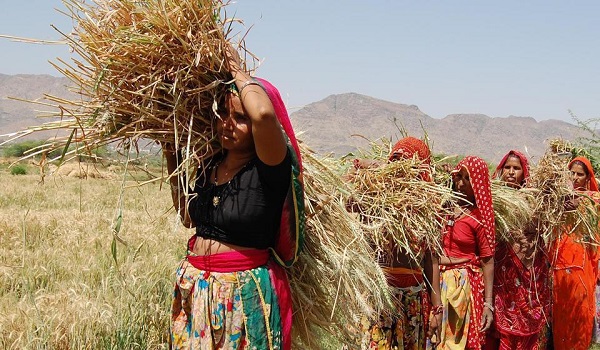Despite being a significant agricultural contributor, Rajasthan struggles with inadequate food processing facilities, leaving farmers dependent on Gujarat and Punjab for processing and exporting their produce. While political promises to establish processing units have been a recurring theme during elections, the implementation remains minimal. Farmers are once again hopeful after Chief Minister Bhajan Lal Sharma’s recent statements highlighting Rajasthan’s impressive production of cumin, isabgol, strawberry, and dates.
Cumin Production: A Missed Opportunity
Rajasthan contributes a staggering 40% of India’s cumin production, with Barmer and Jaisalmer accounting for 80% of the state’s output. However, the state lacks the necessary infrastructure for processing and marketing. Farmers like Mala Ram Choudhary from Gudhamalani, Barmer, lament the absence of mandis and processing units. “We’re forced to transport cumin to Unjha, Gujarat, and accept whatever price we get,” he said. The demand for local processing units has gained traction, especially after Barmer MP Umedaram Beniwal raised the issue in the Lok Sabha, urging the establishment of facilities and completion of the planned Millet Research Institute in Gudamalani.
Isabgol Industry: A Global Contributor with Local Challenges
Rajasthan dominates India’s isabgol production, contributing 70% to the national total and 90% to global output. Despite its market value of ₹2,000-2,500 per kg, farmers are forced to sell at lower prices due to the absence of local processing units. Gendaram Bishnoi, an isabgol farmer from Jalore, shared concerns about the limited value farmers can derive without local facilities. Key isabgol-producing districts include Jalore, Barmer, Nagaur, Chittorgarh, and Jaisalmer.
Dairy and Horticulture Sectors Suffer Too
Dairy farmers in Sirohi and Jalore face similar challenges, with milk packaging units in short supply, pushing them to rely on Gujarat-based facilities. Kinnow farmers in Hanumangarh and Sriganganagar, too, are at the mercy of Punjab traders, who purchase the fruit for ₹10-12 per kg and resell it at ₹25-40 per kg after processing. Subash Sehgal, a Sriganganagar farmer, voiced his frustration: “Why can’t there be juice processing units here? We send our produce to Punjab, where they earn the profit.”
The Way Forward
Establishing local mandis and food processing units across Rajasthan could transform the agricultural landscape. By attracting national traders, ensuring better returns for farmers, and creating local employment opportunities, the state could significantly reduce its reliance on neighbouring regions. The recent optimism among farmers signals a critical juncture for Rajasthan to prioritize infrastructure development and capitalize on its agricultural potential.


